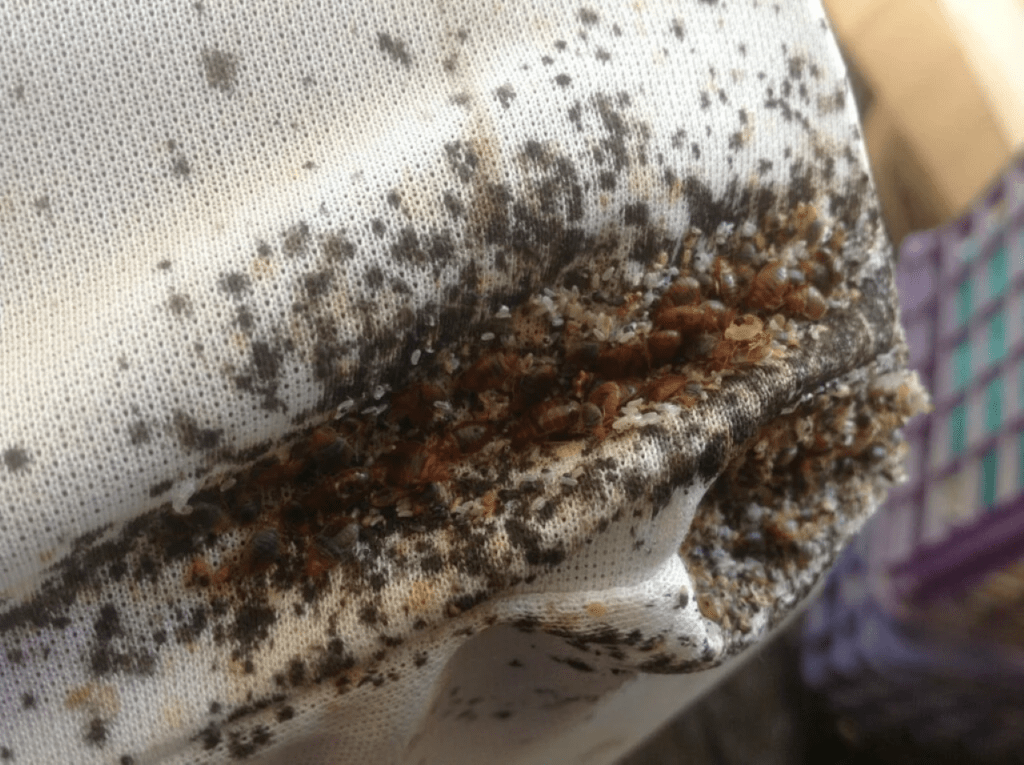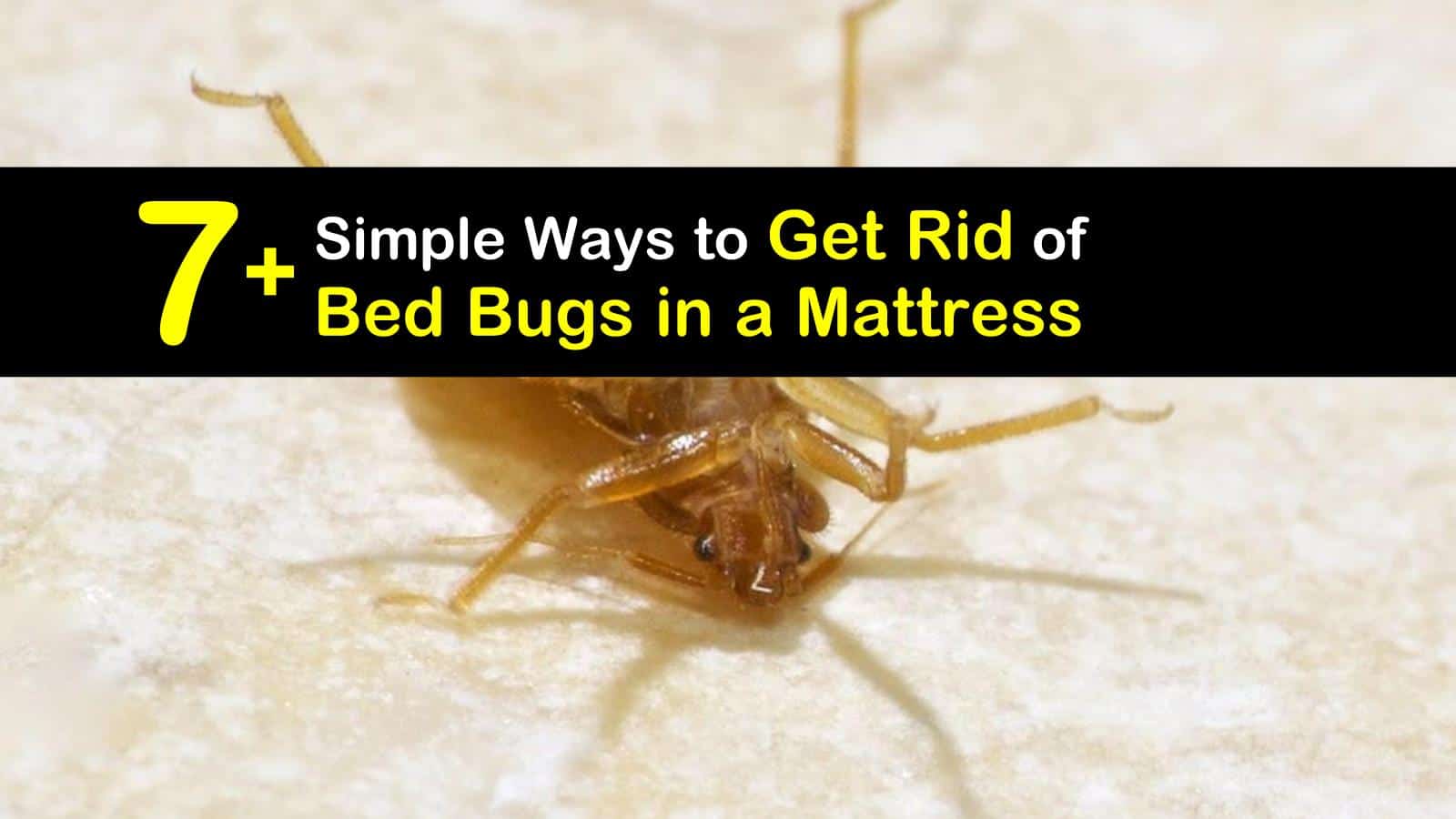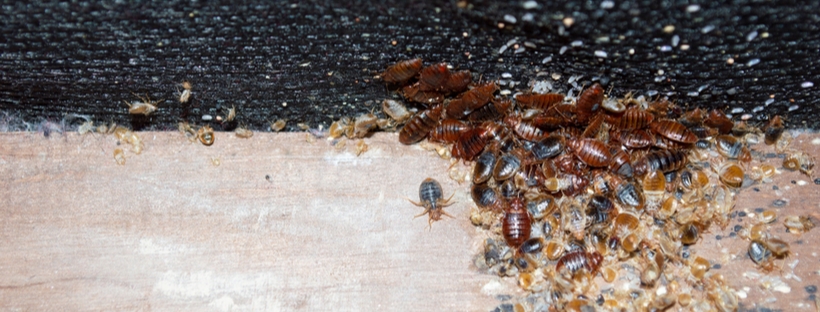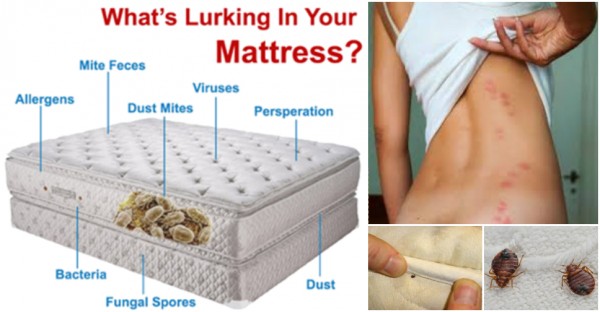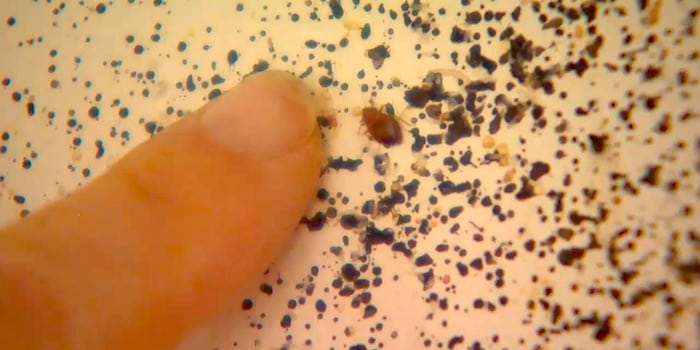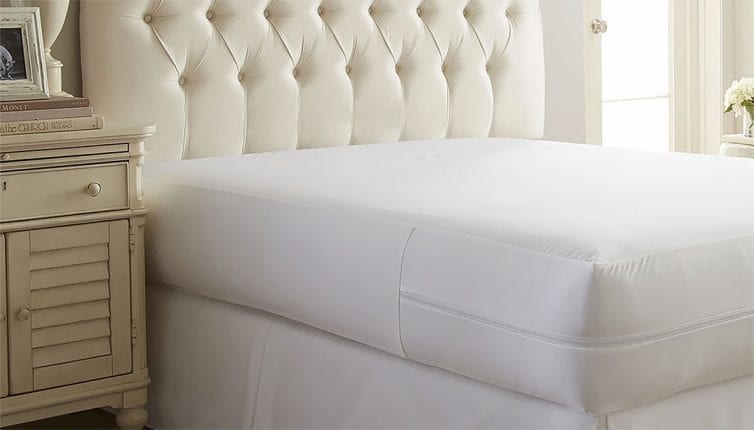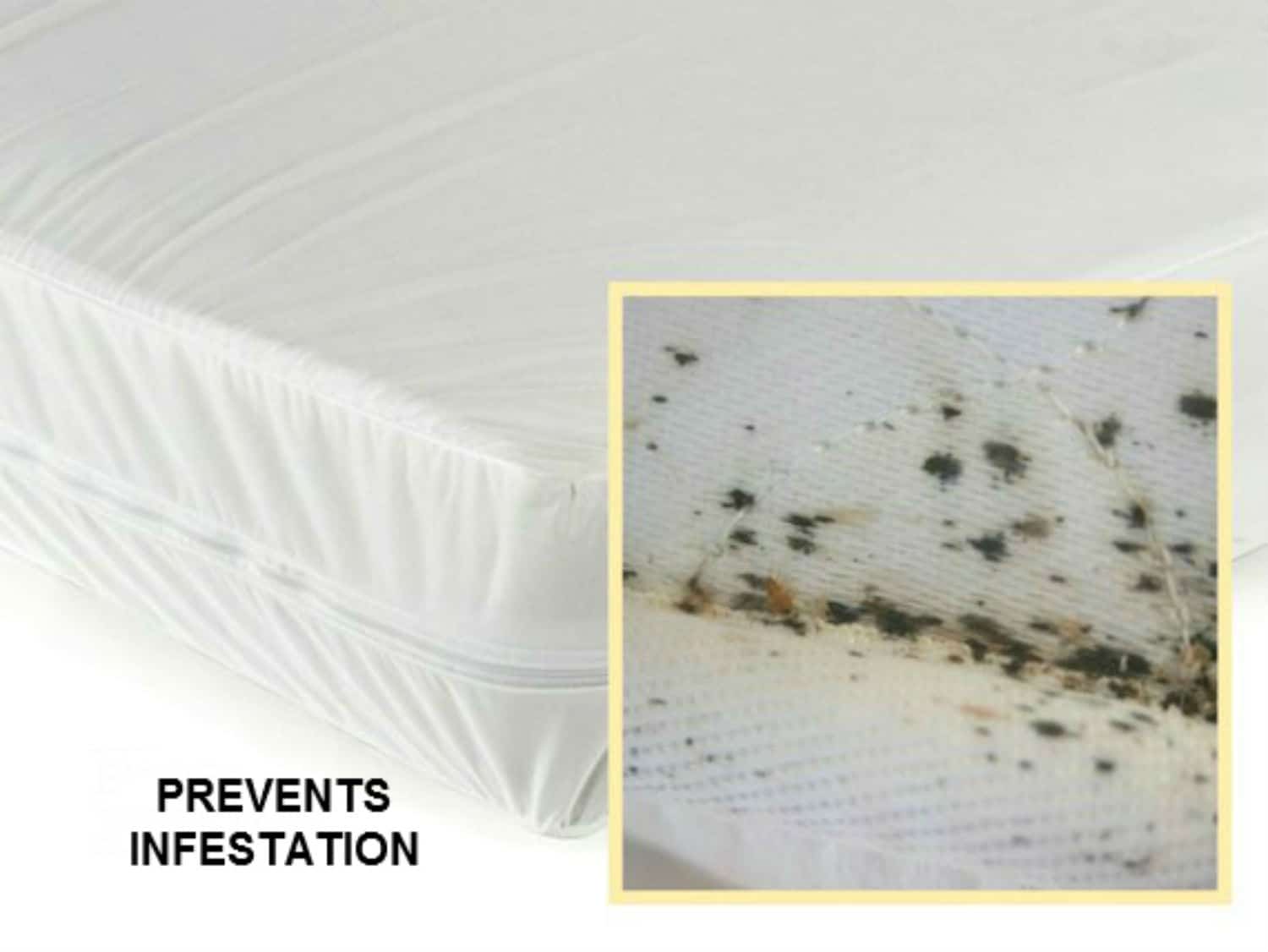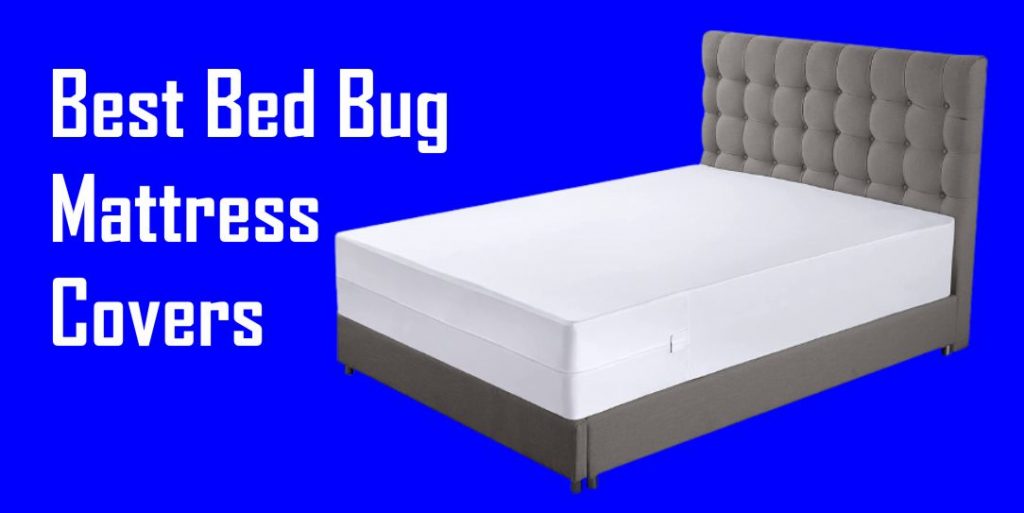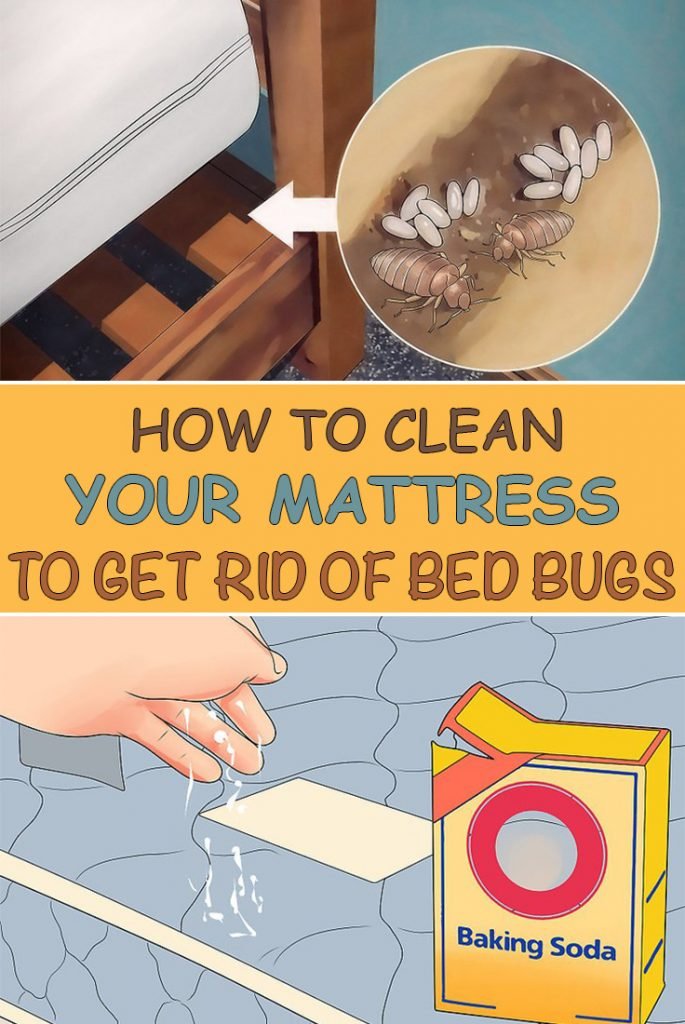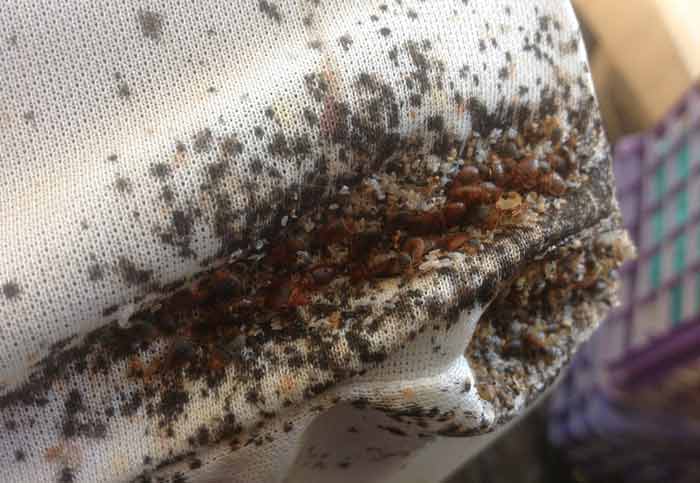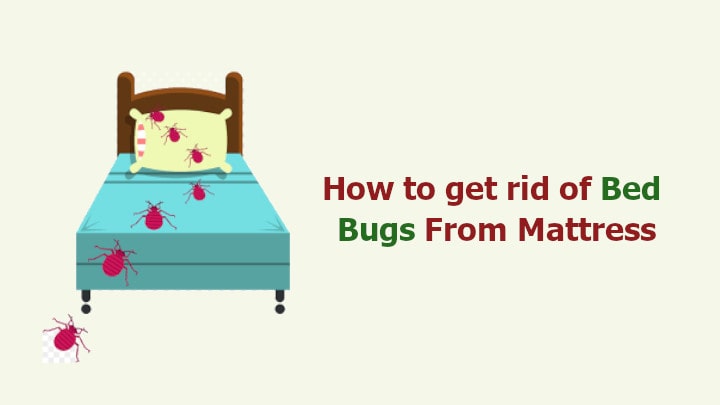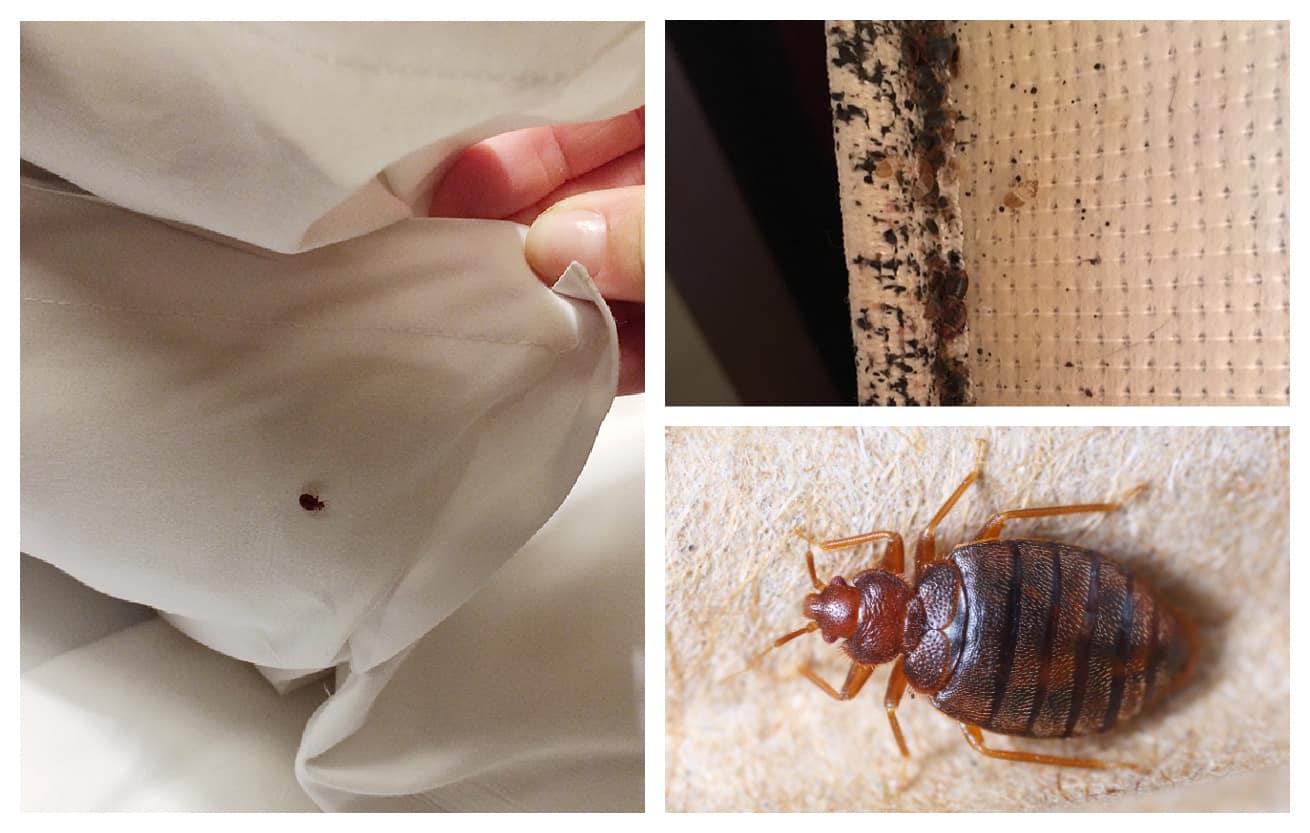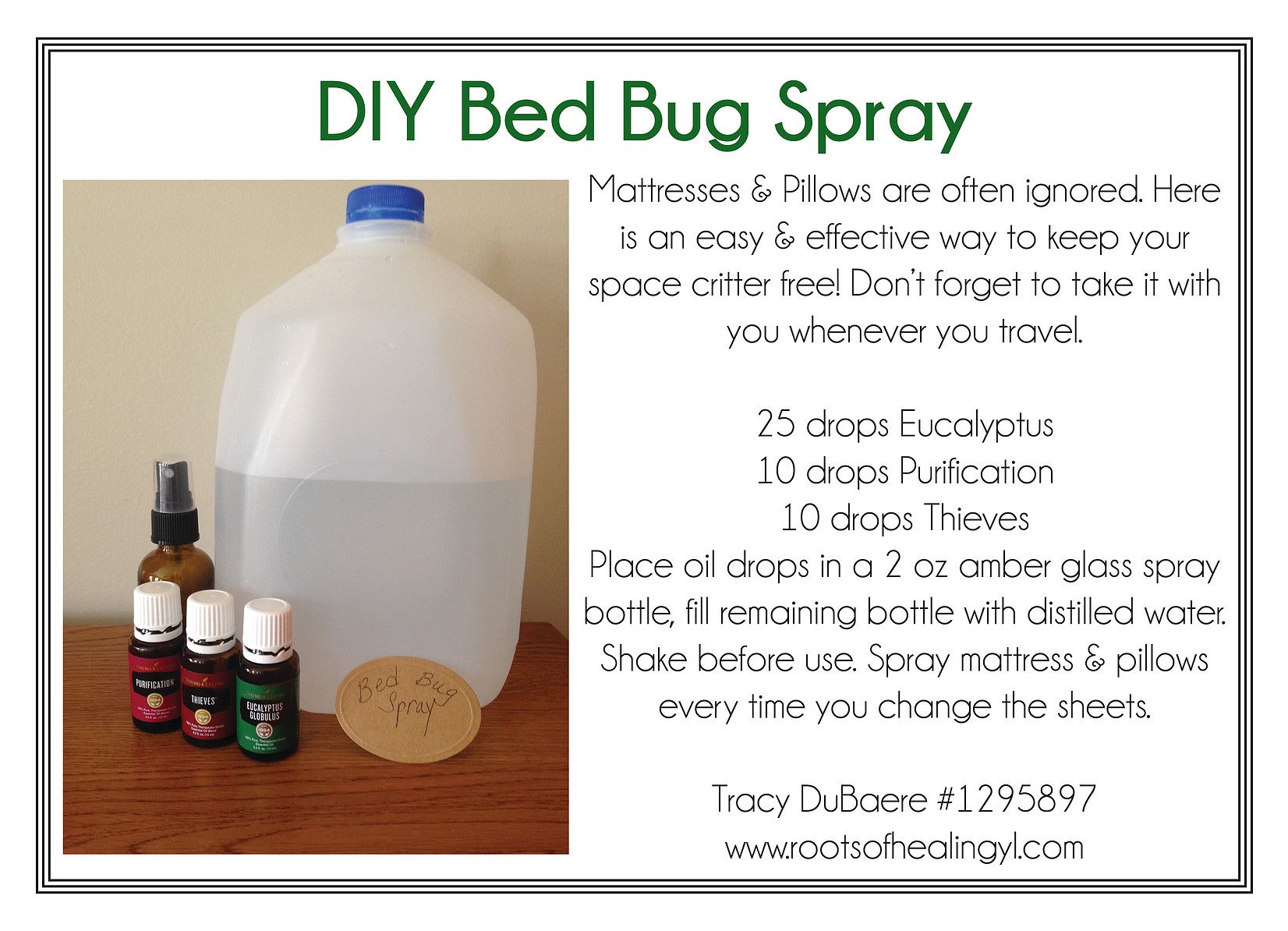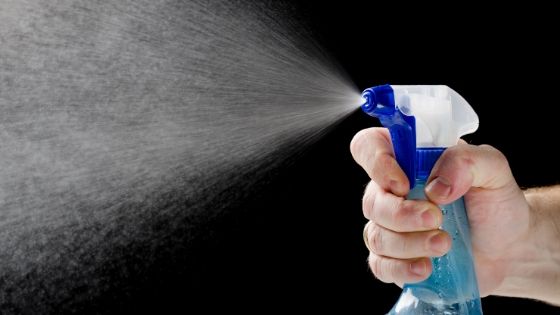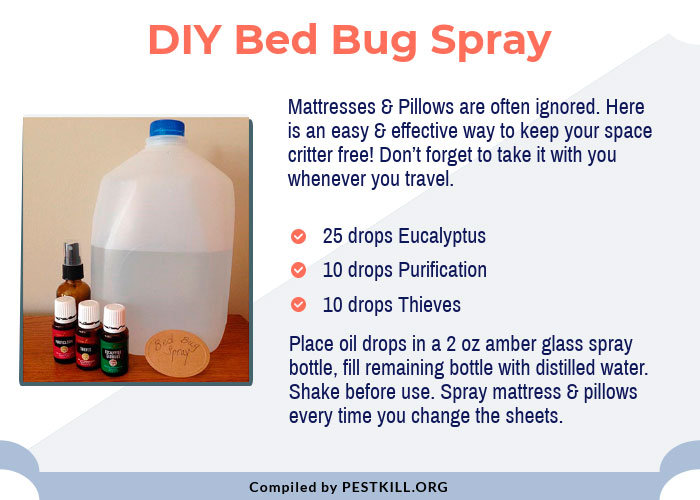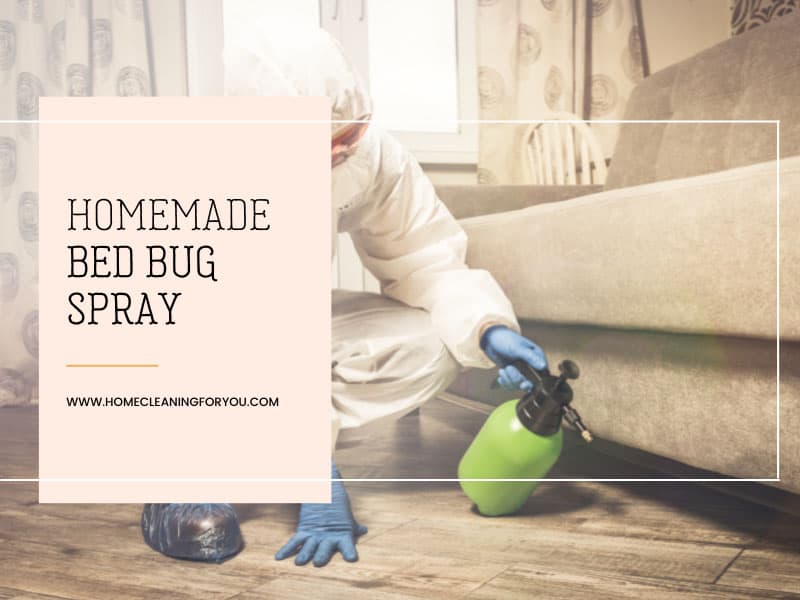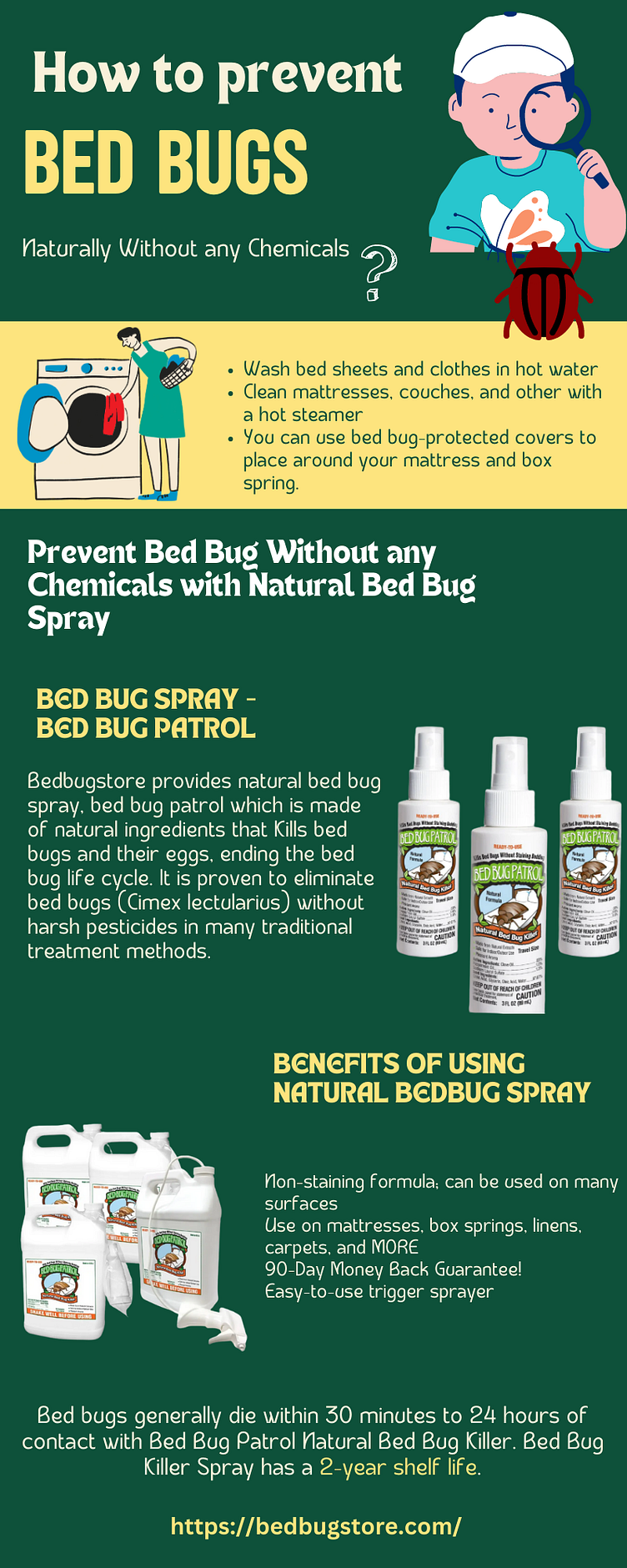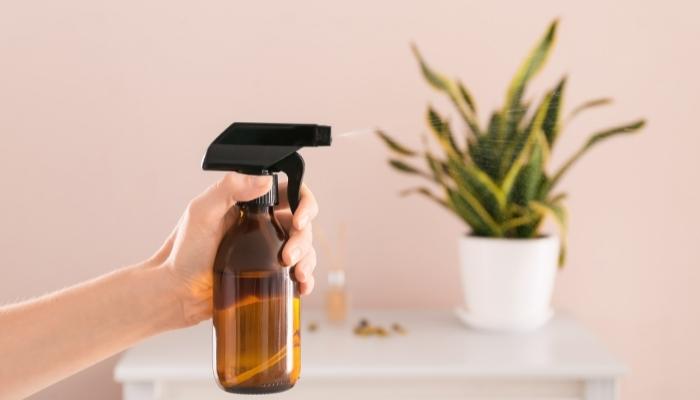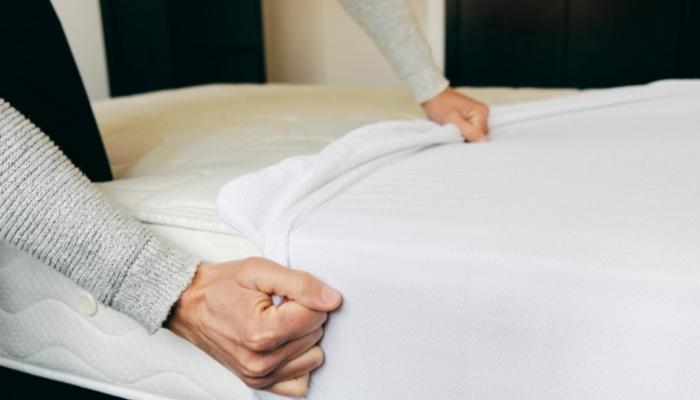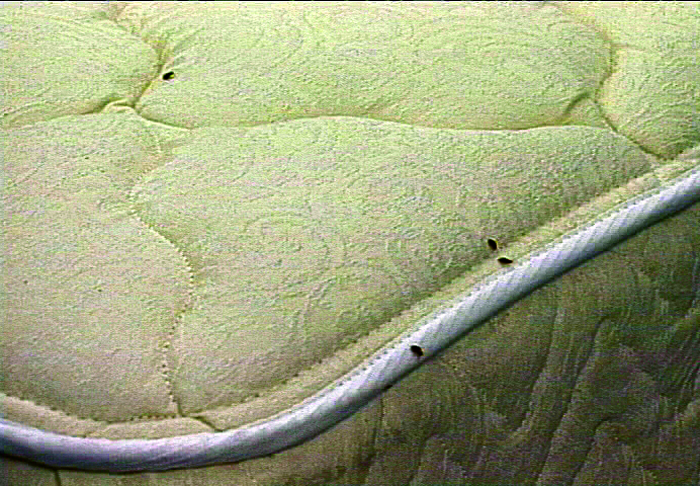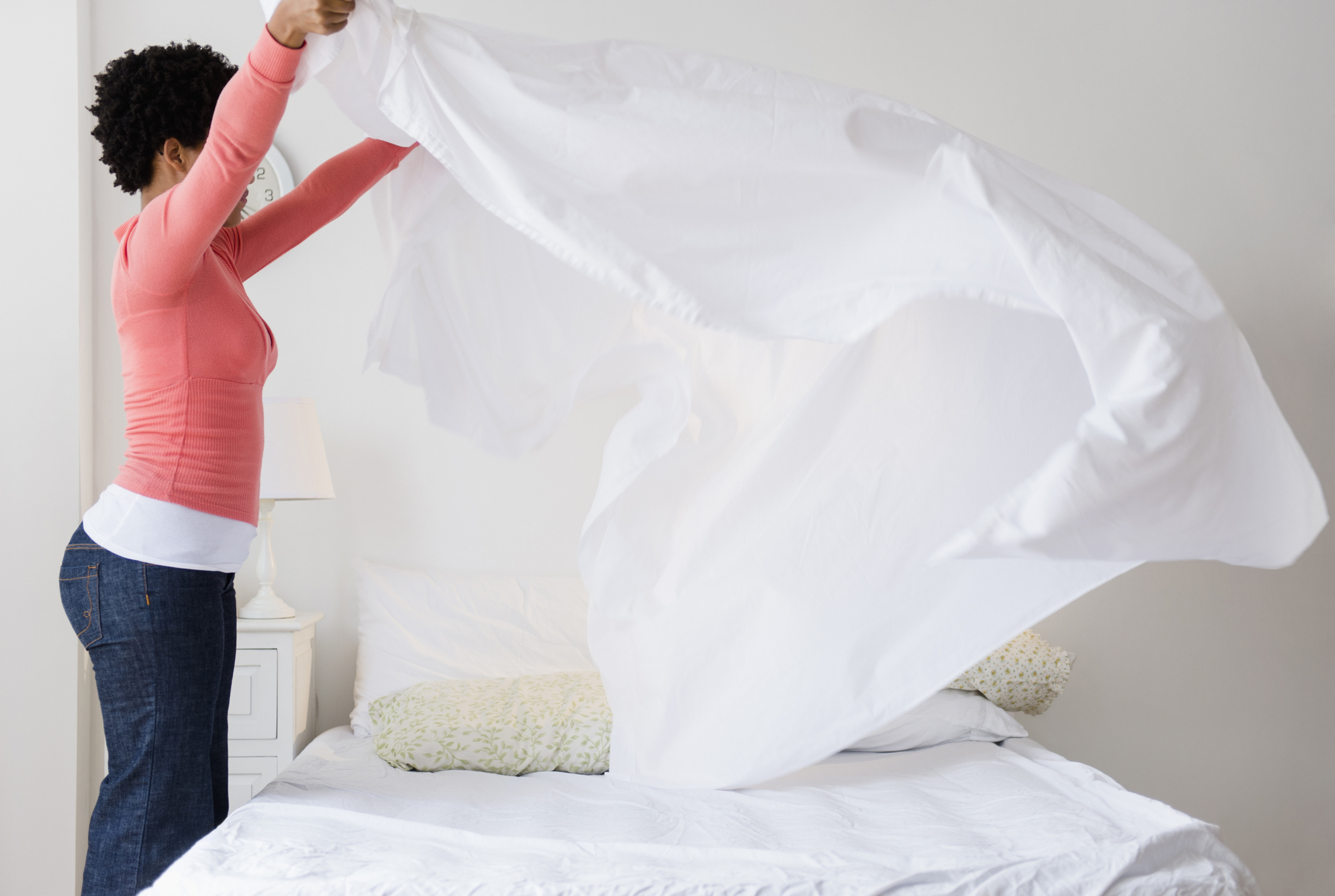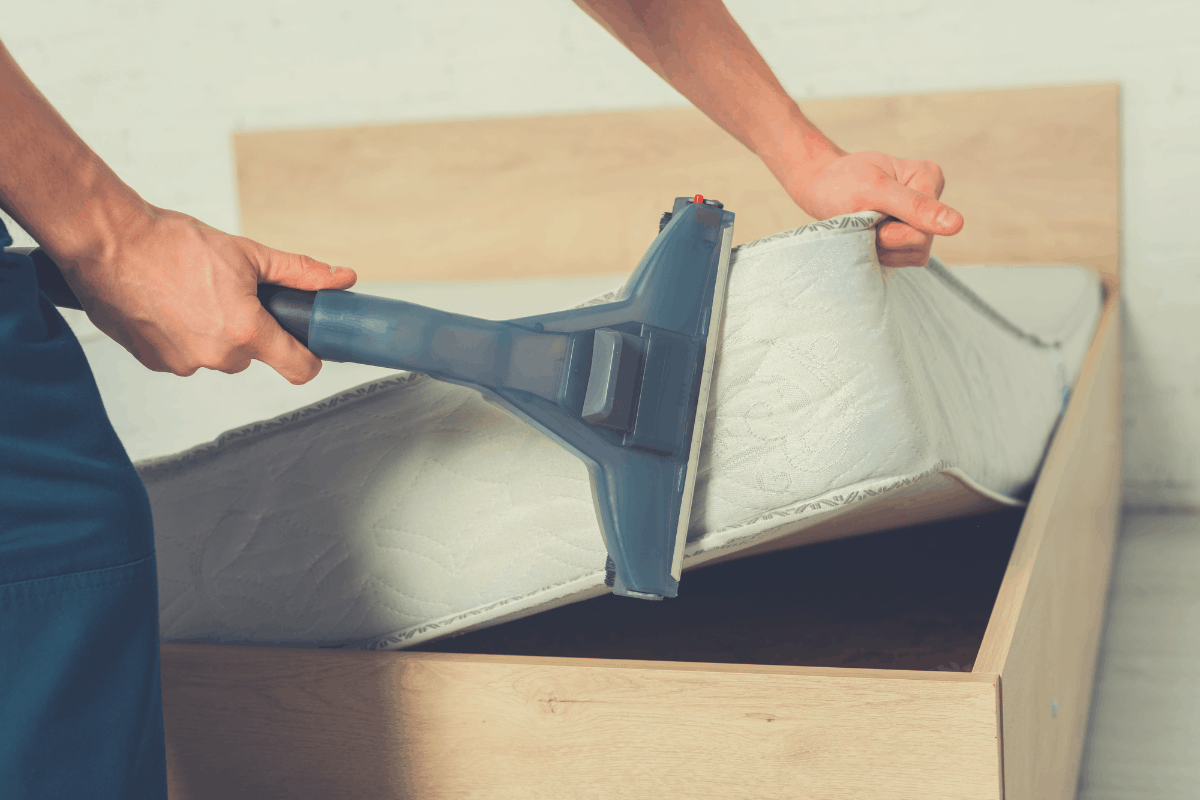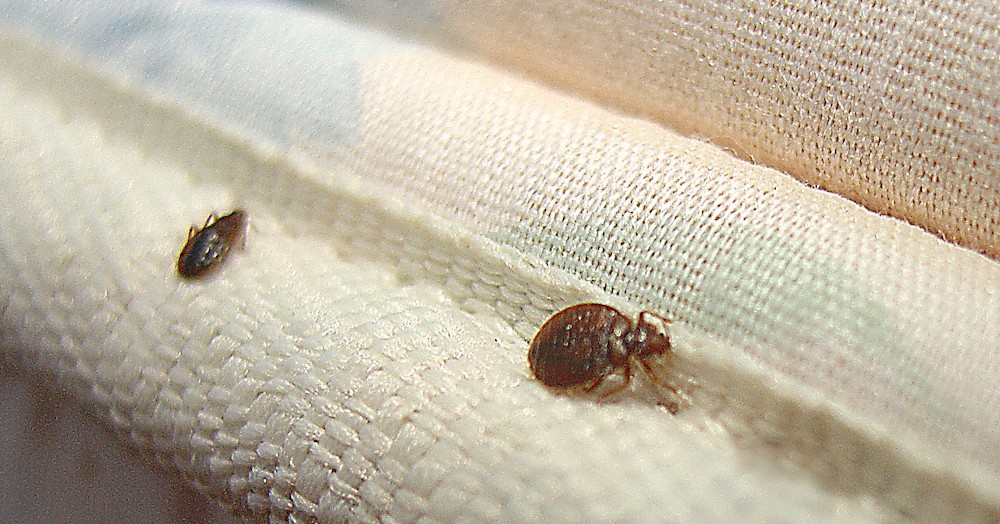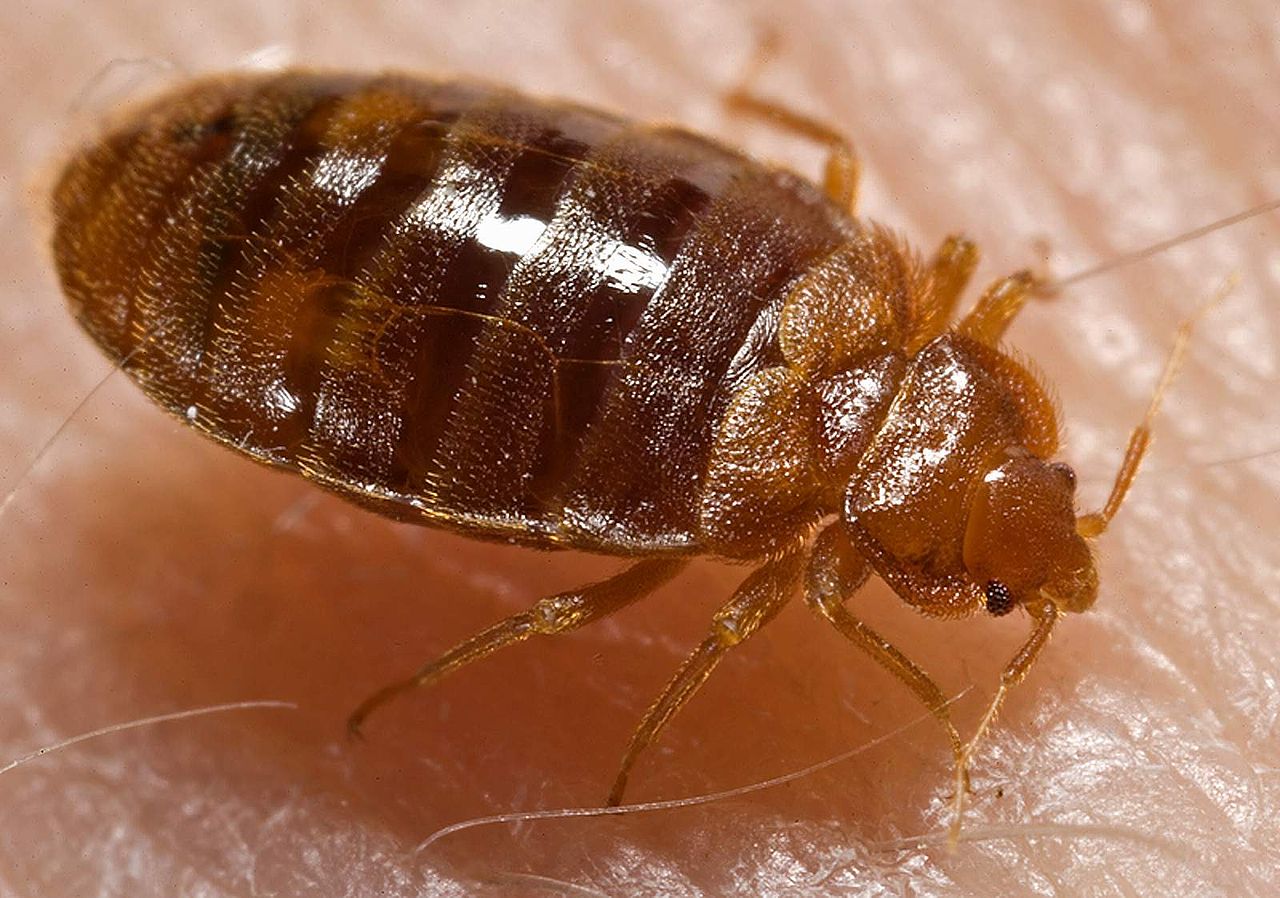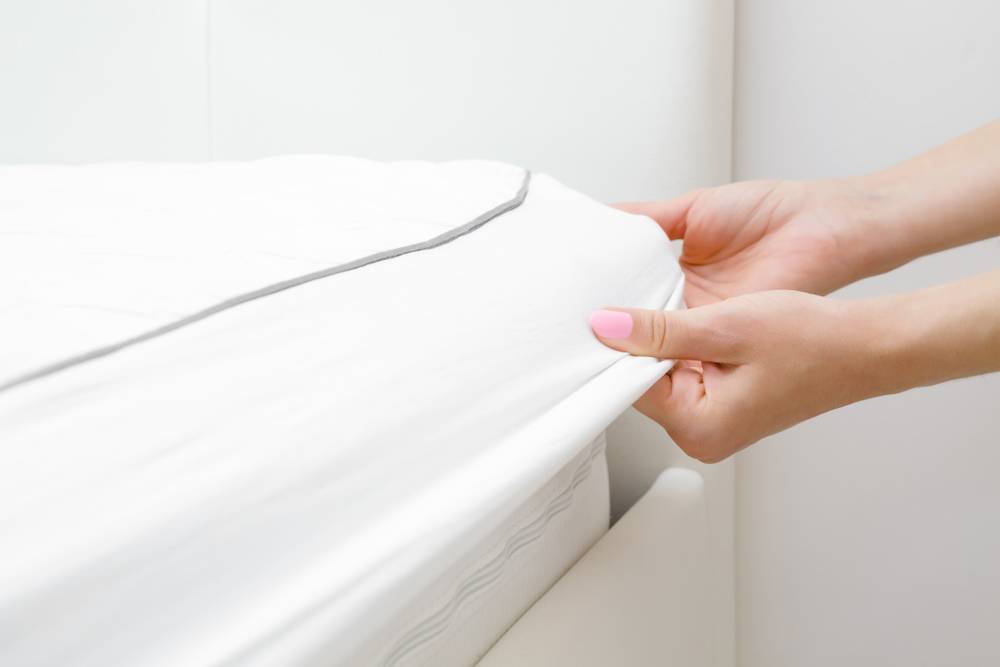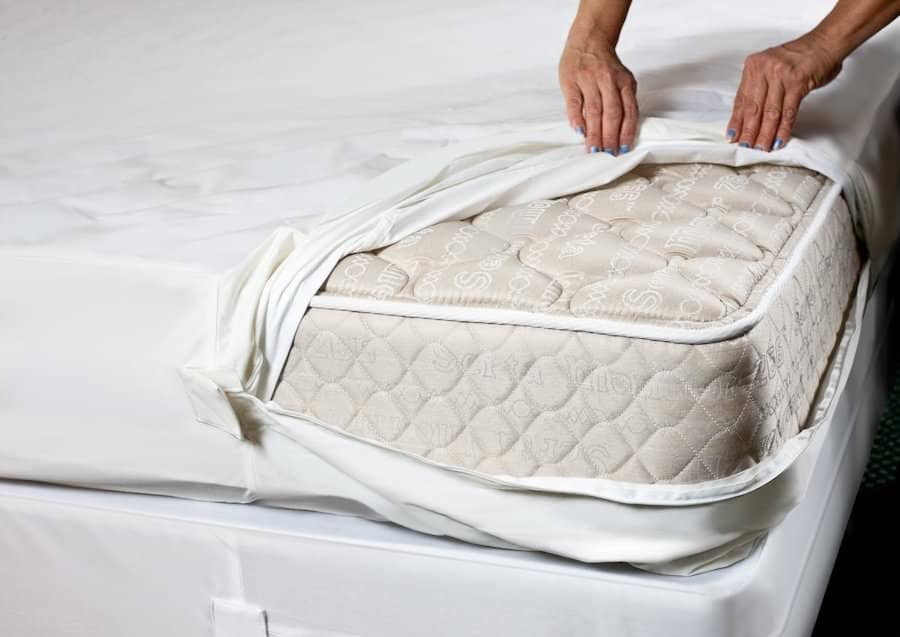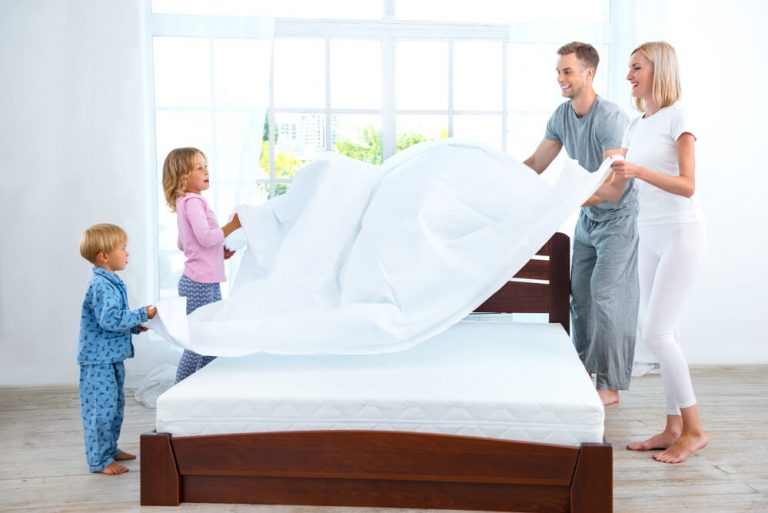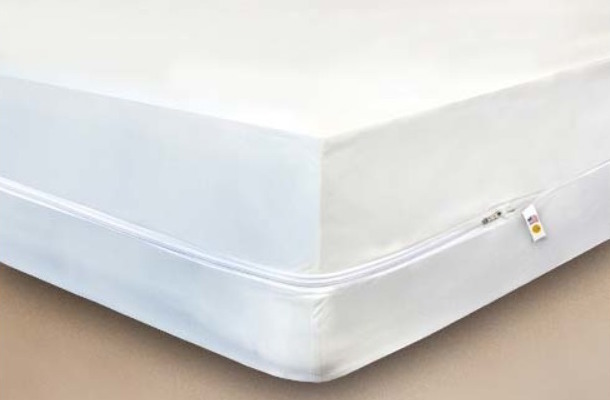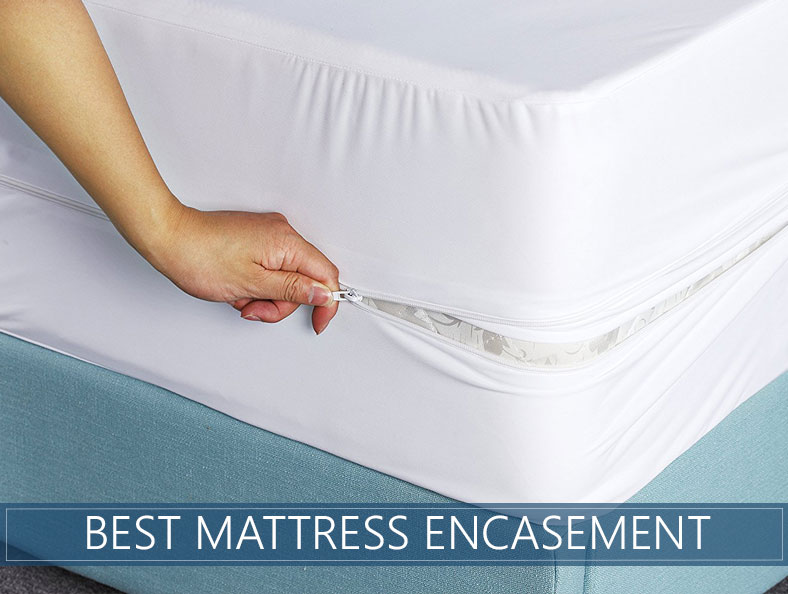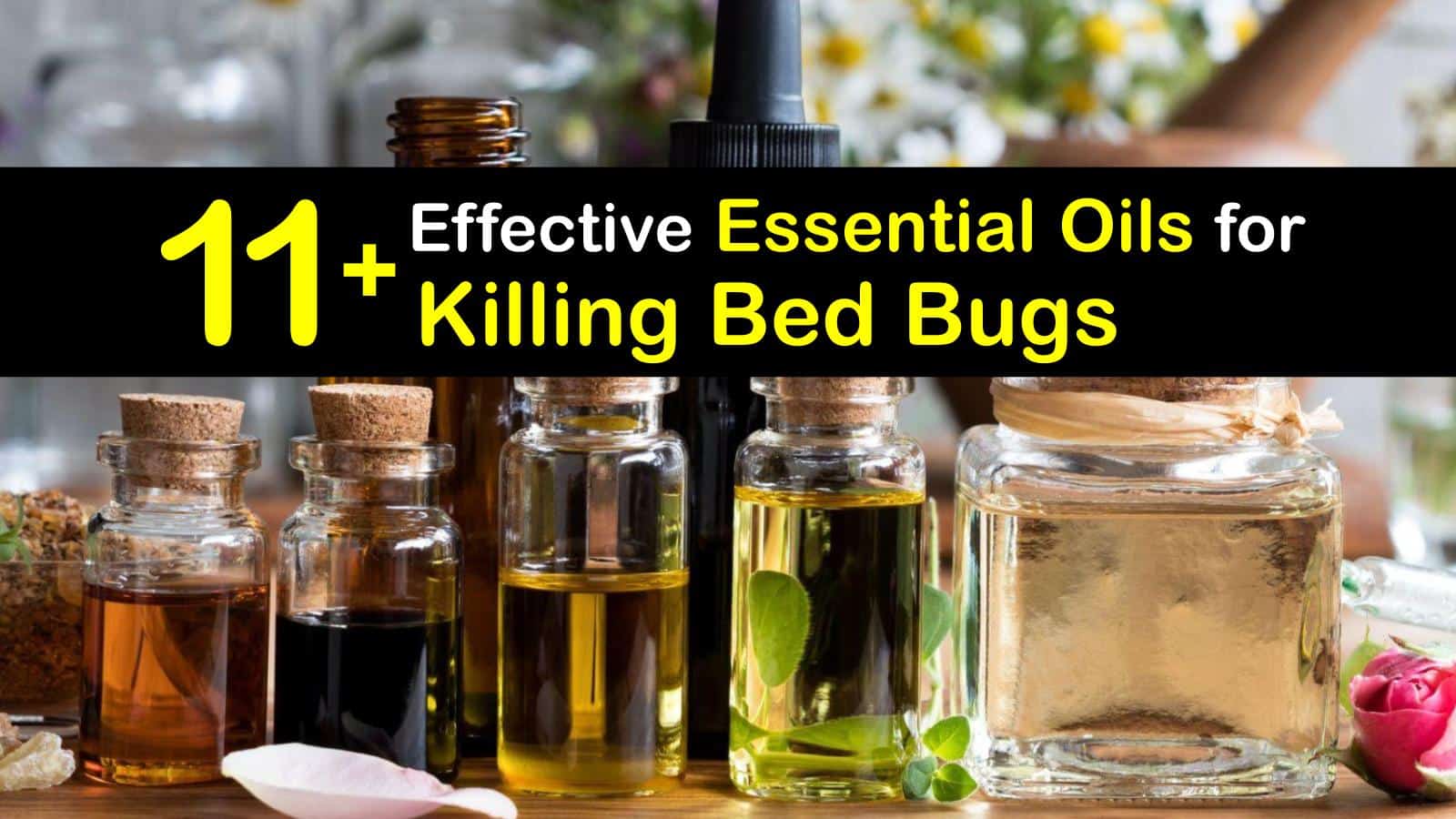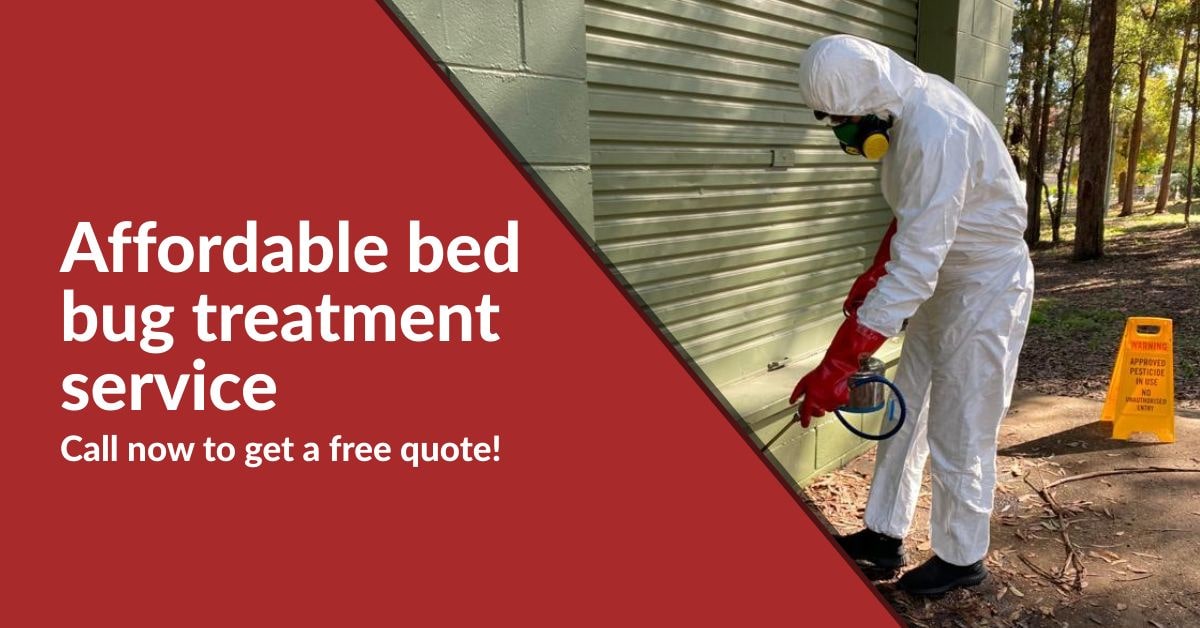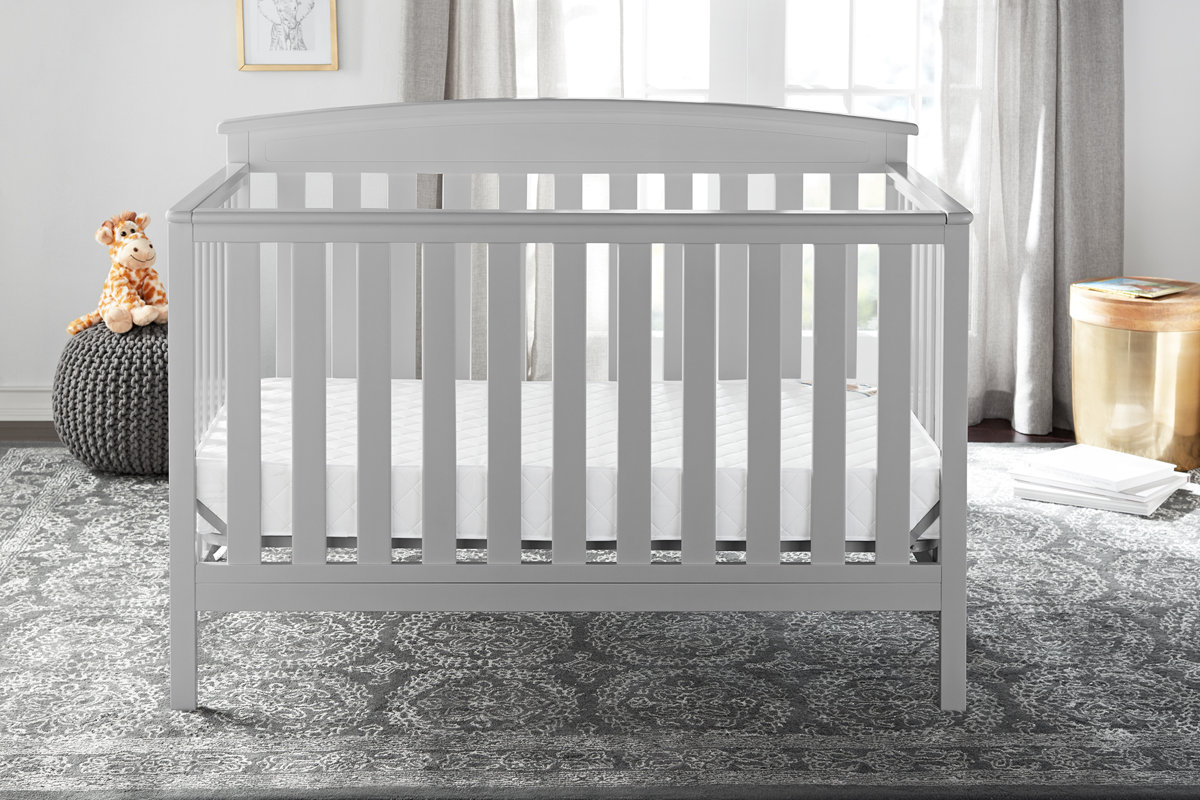Dealing with bed bugs can be a nightmare, especially when they take up residence in your mattress. These pesky insects can cause itchy bites, disrupt your sleep, and even spread to other areas of your home. Fortunately, there are steps you can take to clean your mattress and get rid of bed bugs for good. To start, remove all bedding, including sheets, pillowcases, and comforters. Wash them in hot water and dry them on high heat to kill any bed bugs and their eggs. While the bedding is being washed, turn your attention to the mattress itself. Using a vacuum with a HEPA filter, thoroughly vacuum your mattress, paying special attention to the seams and crevices where bed bugs like to hide. After vacuuming, use a stiff brush to scrub the mattress, loosening any remaining bed bugs and their eggs. Vacuum again to remove any debris. Next, mix together equal parts of rubbing alcohol and water in a spray bottle. Lightly mist your mattress with the solution, focusing on areas where bed bugs were spotted. The alcohol will kill any remaining bed bugs on contact.1. How to Clean a Mattress for Bed Bugs
For those who prefer to avoid chemicals, there are also natural methods for getting rid of bed bugs on your mattress. One option is to use diatomaceous earth, a fossilized powder that absorbs oils and liquids from bugs, causing them to dehydrate and die. To use diatomaceous earth, sprinkle a generous layer on your mattress and let it sit for 24 hours. Then, vacuum it up and repeat the process every few days until the bed bugs are gone. Another natural option is to use essential oils, such as lavender, tea tree, or peppermint, which are known to repel bed bugs. Simply dilute a few drops of the oil with water in a spray bottle and mist your mattress with the solution. You can also add a few drops of the oil to your laundry when washing bedding to help prevent bed bugs from spreading.2. Natural Ways to Get Rid of Bed Bugs on Your Mattress
Prevention is key when it comes to keeping bed bugs away from your mattress. One of the most effective ways to do this is by using a mattress cover specifically designed to keep bed bugs out. Look for covers made of durable materials, such as high-quality polyester or vinyl, that have a tight zipper closure and small pore size. Make sure to cover your entire mattress, including the seams and edges, and check for any tears or openings that bed bugs could potentially enter through. It's also important to regularly wash and dry your mattress cover on high heat to kill any bed bugs that may have found their way onto it.3. The Best Mattress Covers for Bed Bug Protection
Deep cleaning your mattress is an essential step in getting rid of bed bugs and preventing them from returning. To start, mix together equal parts of white vinegar and water in a spray bottle. Lightly mist your mattress with the solution and let it sit for an hour. Next, use a soft-bristled brush to scrub your mattress, focusing on any areas where bed bugs were spotted. After scrubbing, use a clean cloth to blot the mattress and absorb any excess moisture. Finally, let your mattress air dry completely before putting any bedding back on. For added protection, you can also use a steam cleaner to deep clean your mattress. The high heat from the steam will kill any bed bugs and their eggs, leaving your mattress clean and bed bug-free.4. How to Deep Clean Your Mattress to Get Rid of Bed Bugs
If you're dealing with a severe bed bug infestation on your mattress, you may need a stronger solution. Luckily, there are several DIY bed bug sprays you can make at home using ingredients you likely already have on hand. One effective recipe is a mixture of water, white vinegar, and essential oils, such as lavender, tea tree, or eucalyptus. Simply combine the ingredients in a spray bottle and mist your mattress with the solution. You can also add a few drops of dish soap to help suffocate the bed bugs. Another option is to mix together rubbing alcohol, water, and dish soap in a spray bottle. This solution will kill bed bugs on contact and also help to dissolve their eggs.5. DIY Bed Bug Spray for Mattresses
Once you've successfully gotten rid of bed bugs on your mattress, it's important to take steps to prevent them from returning. This includes regularly vacuuming your mattress and surrounding area, using a mattress cover, and regularly washing bedding on high heat. You should also be cautious when traveling or bringing used furniture into your home, as these are common ways for bed bugs to hitch a ride. Inspect any new or used items carefully before bringing them inside, and consider using a bed bug spray as a precaution.6. How to Prevent Bed Bugs on Your Mattress
Cleaning your mattress regularly is not only important for getting rid of bed bugs, but also for maintaining a healthy sleep environment. Over time, mattresses can accumulate dust, dirt, and allergens, which can impact your breathing and sleep quality. By regularly cleaning and maintaining your mattress, you can also spot any bed bug infestations early on and take action before it becomes a larger problem. It's recommended to clean your mattress at least twice a year, or more often if you have allergies or pets.7. The Importance of Regularly Cleaning Your Mattress for Bed Bugs
Knowing how to identify and treat bed bugs on your mattress is essential for effectively getting rid of them. Some common signs of a bed bug infestation include small red or brown stains on your sheets, a musty odor, and itchy red bites on your skin. If you suspect bed bugs, carefully inspect your mattress, paying attention to seams, crevices, and other hiding spots. Use a flashlight to look for live bugs, eggs, or fecal matter. If you spot any signs of bed bugs, use the methods mentioned earlier to clean and treat your mattress.8. How to Identify and Treat Bed Bugs on Your Mattress
In addition to using a mattress cover, you may also want to consider investing in a mattress encasement for added protection against bed bugs. These are essentially large, zippered bags that completely encase your mattress, making it nearly impossible for bed bugs to enter or escape. When purchasing a mattress encasement, make sure to look for options that are specifically designed for bed bug protection and have a tight zipper closure. You should also make sure to regularly inspect and clean your encasement to prevent any potential bed bug problems from escalating.9. The Top Mattress Encasements for Bed Bug Protection
In addition to using essential oils as a natural repellent, there are also specific oils that are known to have insecticidal properties and can effectively kill bed bugs. These include clove, thyme, and neem oil. To use essential oils for bed bug control, dilute a few drops in water and spray your mattress and surrounding area. You can also add a few drops to your laundry when washing bedding. However, be cautious when using essential oils, as they can be harmful to pets and children if not used properly.10. Essential Oils for Bed Bug Control on Your Mattress
How a Clean Mattress Can Help Eliminate Bed Bugs in Your Home

Understanding the Problem
 Bed bugs are a common household pest that can cause a lot of discomfort and frustration for homeowners. These tiny, reddish-brown insects feed on human blood and are often found in areas where people sleep, such as mattresses, box springs, and bed frames. They can also hide in cracks and crevices, making them difficult to detect and eradicate. If you suspect you have a bed bug infestation, it is important to act quickly and take the necessary steps to eliminate them from your home.
Bed bugs are a common household pest that can cause a lot of discomfort and frustration for homeowners. These tiny, reddish-brown insects feed on human blood and are often found in areas where people sleep, such as mattresses, box springs, and bed frames. They can also hide in cracks and crevices, making them difficult to detect and eradicate. If you suspect you have a bed bug infestation, it is important to act quickly and take the necessary steps to eliminate them from your home.
The Importance of a Clean Mattress
 One of the most effective ways to get rid of bed bugs is by cleaning your mattress. These pests are excellent at hiding and can easily go unnoticed in the crevices and folds of a dirty mattress. By regularly cleaning and maintaining your mattress, you can significantly reduce the risk of a bed bug infestation.
Regular vacuuming and steam cleaning can help remove any bed bugs and their eggs that may be lurking in your mattress.
It is also important to wash your bedding and linens on a regular basis, as these can also harbor bed bugs.
One of the most effective ways to get rid of bed bugs is by cleaning your mattress. These pests are excellent at hiding and can easily go unnoticed in the crevices and folds of a dirty mattress. By regularly cleaning and maintaining your mattress, you can significantly reduce the risk of a bed bug infestation.
Regular vacuuming and steam cleaning can help remove any bed bugs and their eggs that may be lurking in your mattress.
It is also important to wash your bedding and linens on a regular basis, as these can also harbor bed bugs.
How to Clean Your Mattress
 To effectively clean your mattress and eliminate bed bugs,
start by stripping your bed of all bedding and linens and washing them in hot water.
Next, use a vacuum with a high-efficiency particulate air (HEPA) filter to thoroughly vacuum your mattress, paying extra attention to seams, folds, and crevices.
After vacuuming, use a steam cleaner on your mattress to kill any remaining bed bugs and their eggs.
Be sure to follow the manufacturer's instructions and properly dispose of the vacuum bag and steam cleaner water to prevent any potential bed bugs from spreading.
To effectively clean your mattress and eliminate bed bugs,
start by stripping your bed of all bedding and linens and washing them in hot water.
Next, use a vacuum with a high-efficiency particulate air (HEPA) filter to thoroughly vacuum your mattress, paying extra attention to seams, folds, and crevices.
After vacuuming, use a steam cleaner on your mattress to kill any remaining bed bugs and their eggs.
Be sure to follow the manufacturer's instructions and properly dispose of the vacuum bag and steam cleaner water to prevent any potential bed bugs from spreading.
Preventing Future Infestations
 Keeping your mattress clean is an important step in preventing future bed bug infestations.
Regularly vacuuming and steam cleaning your mattress can help keep these pests at bay.
You can also use mattress encasements, which are specially designed covers that fully encase your mattress and box spring, making it difficult for bed bugs to infest. Additionally, be cautious when purchasing used mattresses or furniture, as they may already be infested with bed bugs.
Keeping your mattress clean is an important step in preventing future bed bug infestations.
Regularly vacuuming and steam cleaning your mattress can help keep these pests at bay.
You can also use mattress encasements, which are specially designed covers that fully encase your mattress and box spring, making it difficult for bed bugs to infest. Additionally, be cautious when purchasing used mattresses or furniture, as they may already be infested with bed bugs.
Conclusion
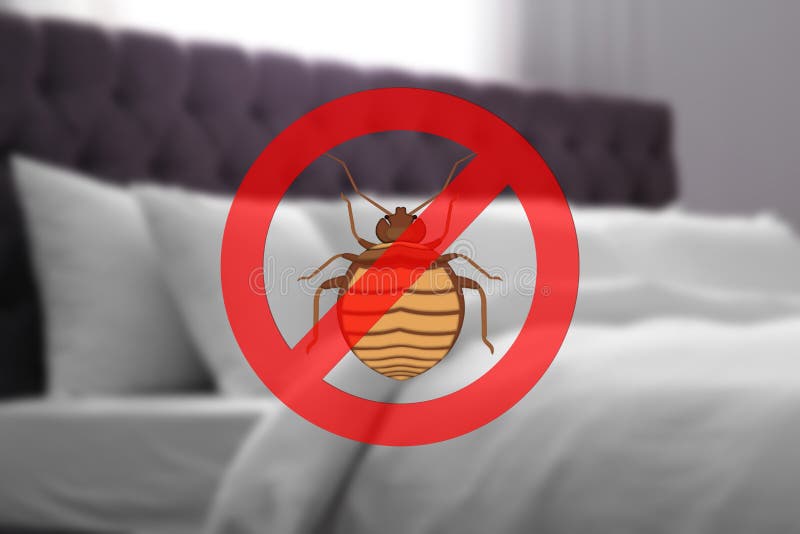 In conclusion, a clean mattress is crucial in eliminating bed bugs from your home. By regularly cleaning and maintaining your mattress, you can significantly reduce the risk of a bed bug infestation. Remember to also take preventative measures, such as using mattress encasements and being cautious when purchasing used items. With proper care and maintenance, you can keep your mattress free of bed bugs and ensure a good night's sleep.
In conclusion, a clean mattress is crucial in eliminating bed bugs from your home. By regularly cleaning and maintaining your mattress, you can significantly reduce the risk of a bed bug infestation. Remember to also take preventative measures, such as using mattress encasements and being cautious when purchasing used items. With proper care and maintenance, you can keep your mattress free of bed bugs and ensure a good night's sleep.



